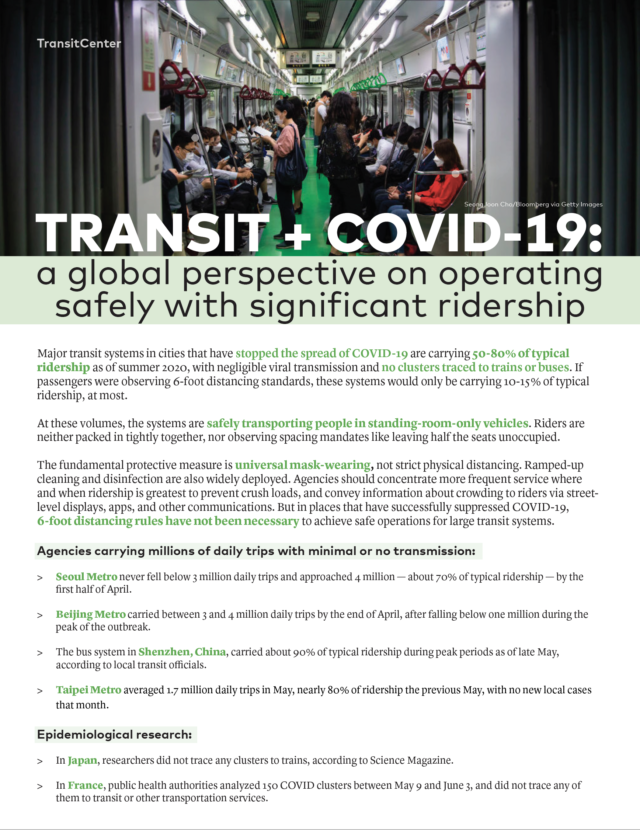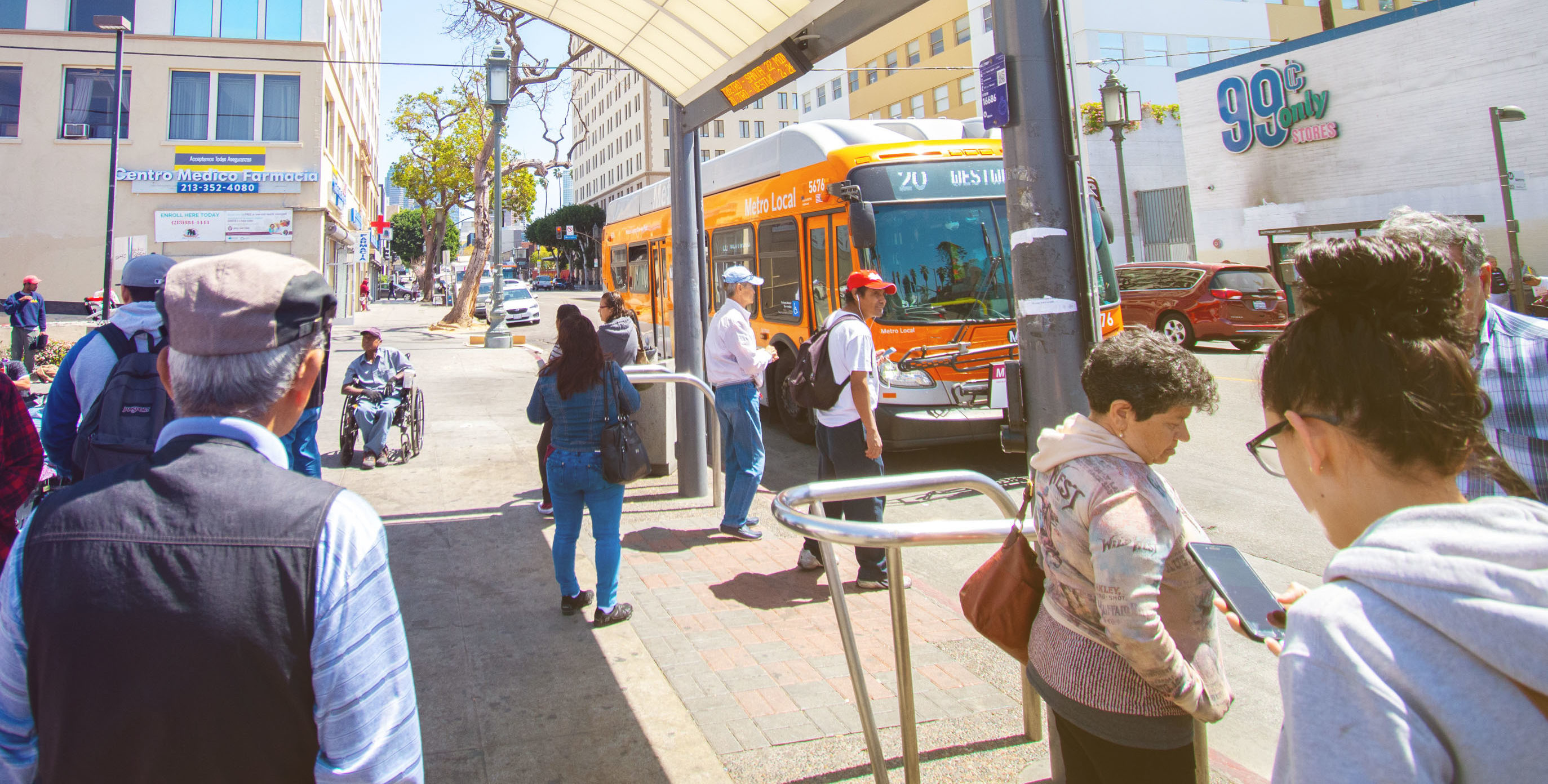
Reports and Transit Tools
I Want To Read:
Reports are long-form research, while TransitTools are designed for quick digestion.
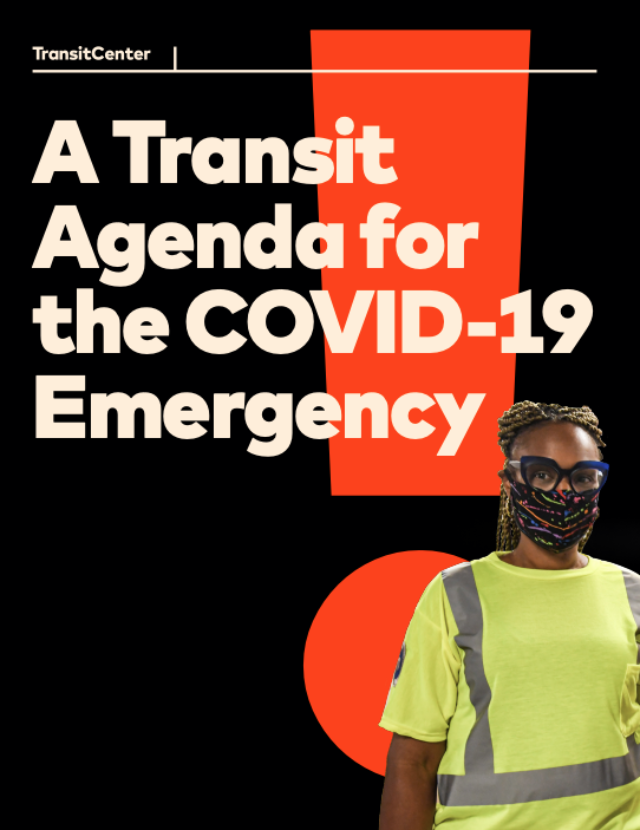 A Transit Agenda for the COVID-19 Emergency
A Transit Agenda for the COVID-19 Emergency
Drawing on interviews with public health experts and transit agency officials, as well as a survey of more than 2,000 residents in major American cities, this brief summarizes current epidemiological knowledge about COVID-19 and transit, and explores what city dwellers think about getting back on board. This research informs recommendations to make transit service safe, effective, and appealing.
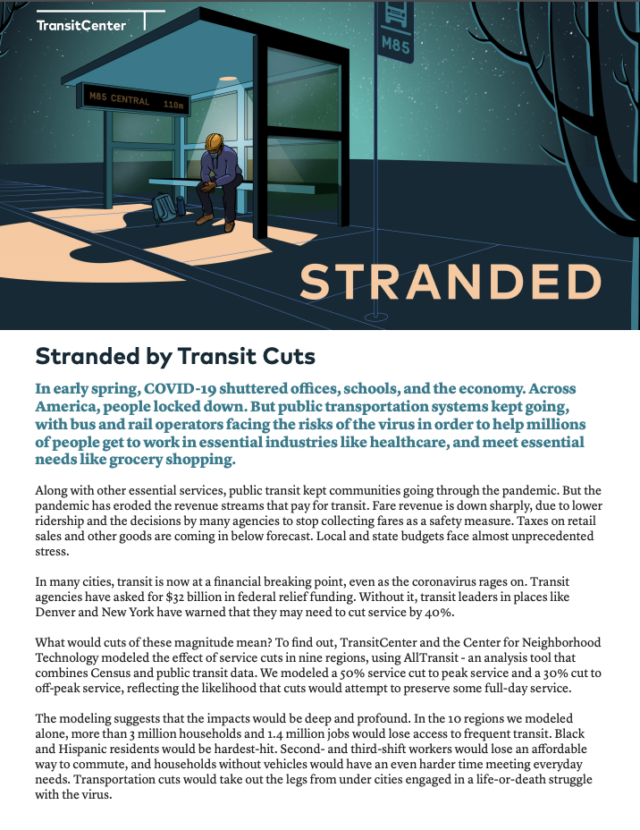 Stranded
Stranded
Millions of people across the country are at risk of losing access to good transit as the COVID pandemic grinds on and imposes an unprecedented fiscal crisis on the nation’s transit agencies. Without more emergency aid, transit leaders in cities like New York and Denver are warning of 40% service cuts. What would cuts of this magnitude mean for riders? To find out, TransitCenter and the Center for Neighborhood Technology (CNT) estimated the effect of service cuts in 10 regions - Chicago, Atlanta, Boston, Denver, Miami, Cincinnati, New York, Philadelphia, Seattle, and Los Angeles.
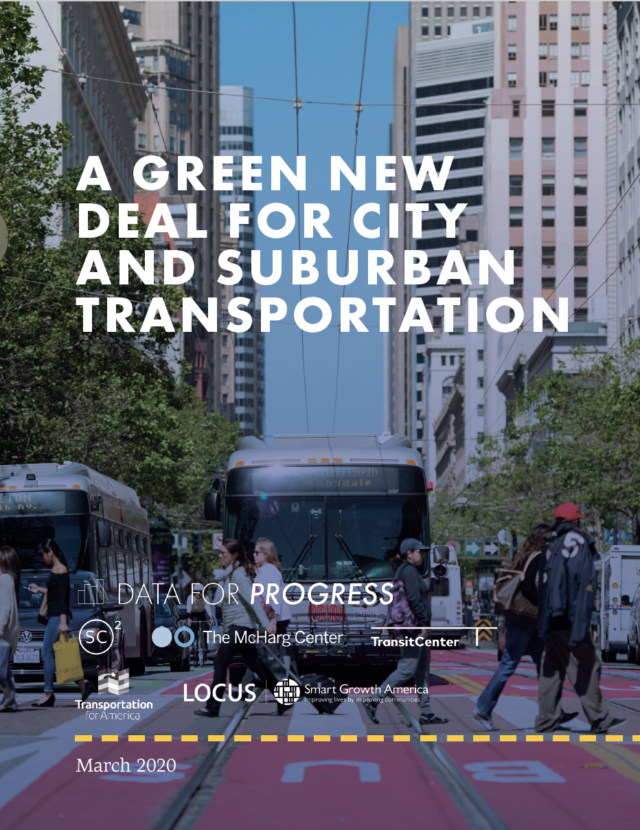 A Green New Deal for City and Suburban Transportation
A Green New Deal for City and Suburban Transportation
A Green New Deal for City and Suburban Transportation lays out federal policy recommendations for reducing emissions from the transportation sector in cities and suburbs while making communities healthier, more equitable, and prosperous.
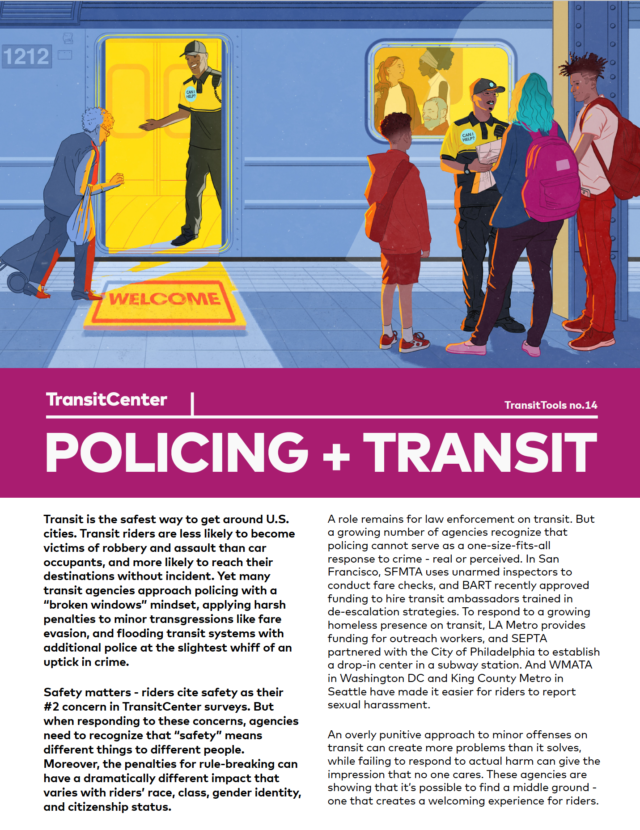 Policing + Transit
Policing + Transit
A growing number of transit agencies recognize that policing cannot serve as a one-size-fits-all response to crime - real or perceived.
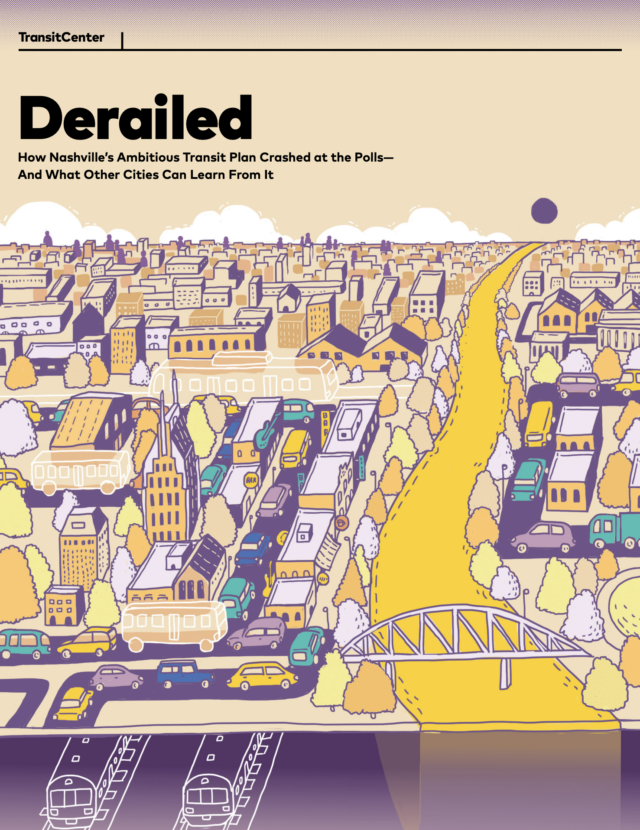 Derailed: How Nashville’s Ambitious Transit Plan Crashed at the Polls—And What Other Cities Can Learn From It
Derailed: How Nashville’s Ambitious Transit Plan Crashed at the Polls—And What Other Cities Can Learn From It
In May of 2018, “Let’s Move Nashville,” a referendum to direct billions toward rail and bus…
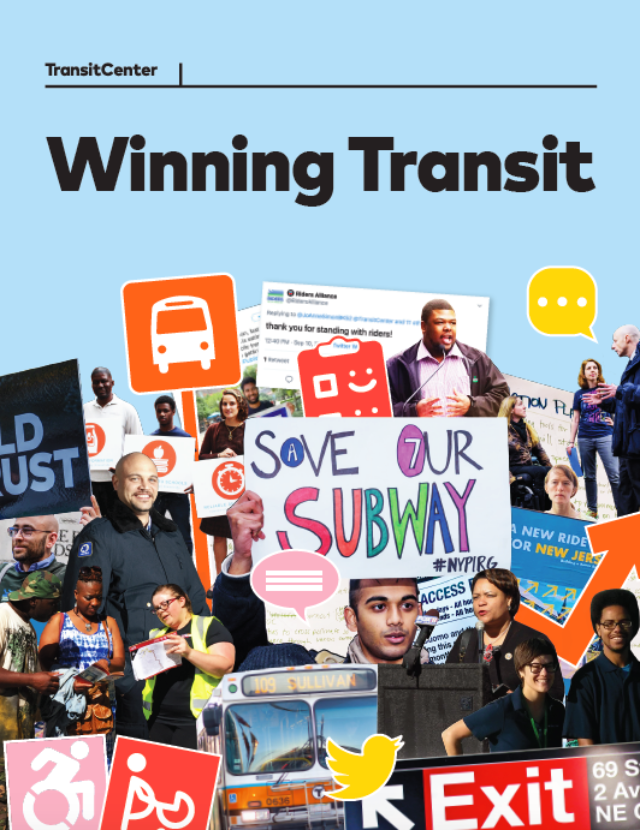 Winning Transit
Winning Transit
Drawing from our experience working with transit advocates, elected officials, and agency reformers, "Winning Transit" is a guide for improving transit in your city.
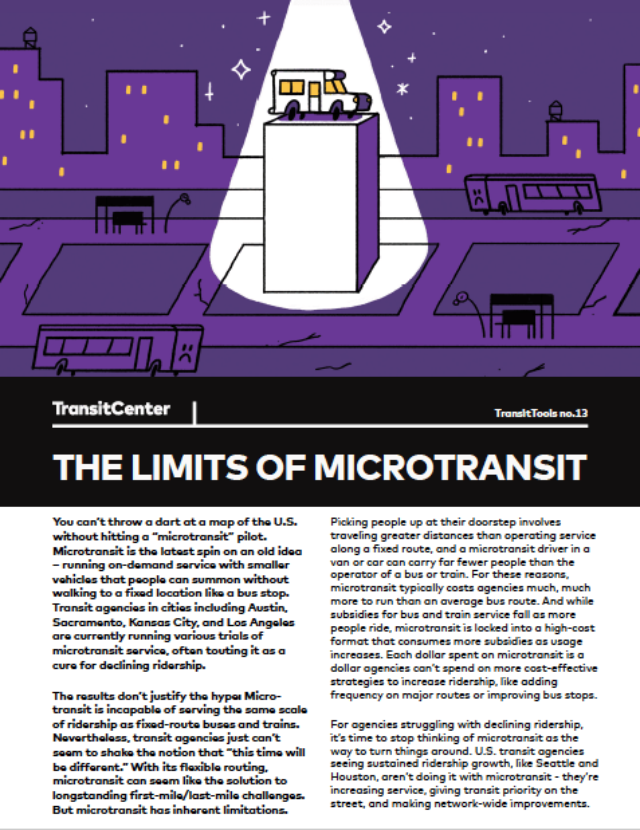 The Limits of Microtransit
The Limits of Microtransit
With its flexible routing, microtransit can seem like the solution to longstanding first-mile/last-mile challenges. But microtransit has inherent limitations, and the results don't justify the hype.
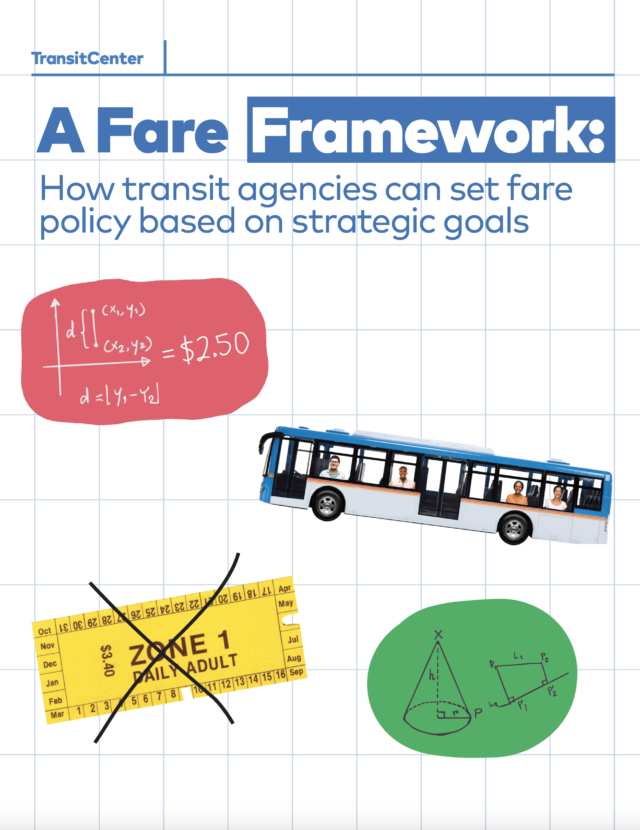 A Fare Framework:
A Fare Framework:
Agencies with strategic fare policies produce a better experience for riders, making transit more affordable, accessible, and convenient to use.
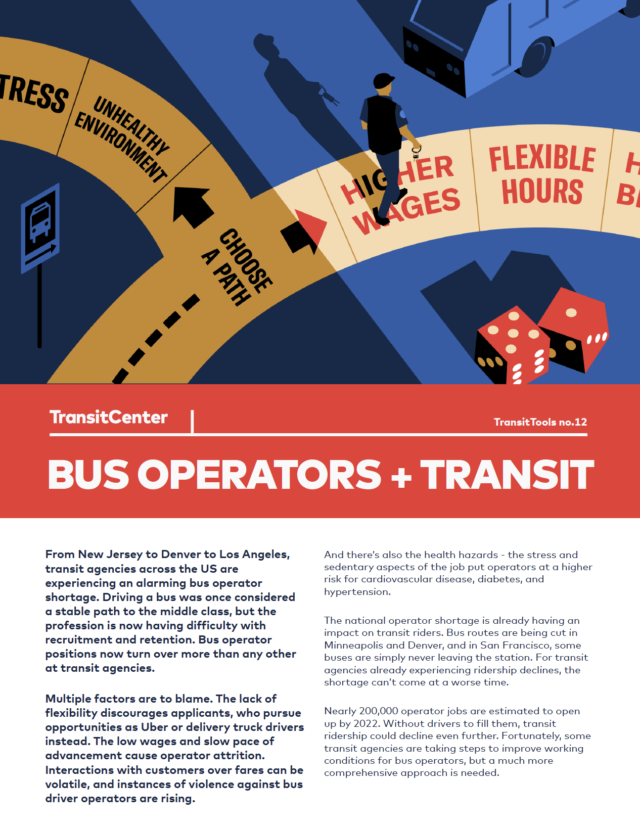 Bus Operators + Transit
Bus Operators + Transit
From New Jersey to Denver to Los Angeles, transit agencies across the US are experiencing an alarming bus operator shortage.
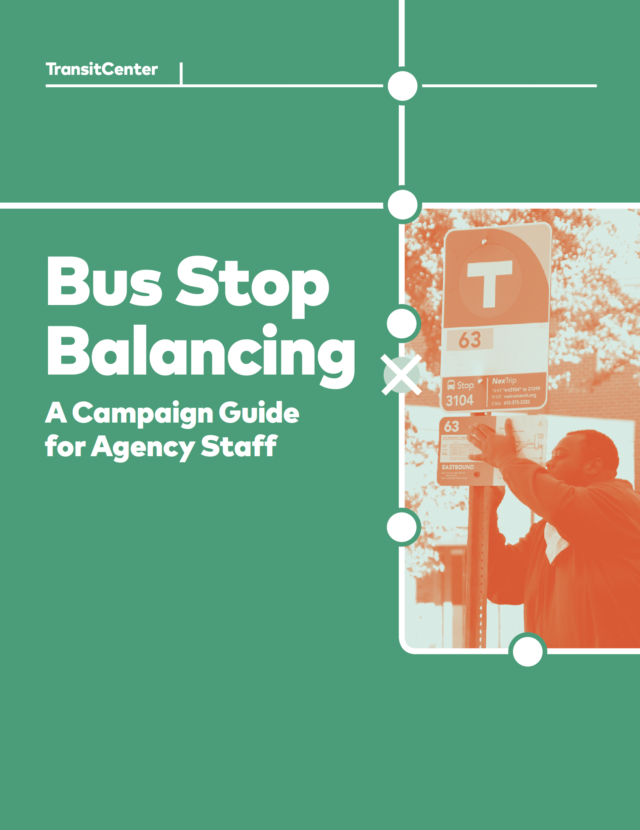 Bus Stop Balancing
Bus Stop Balancing
One of the simplest and most cost-effective ways to speed up bus trips is by extending the average distance between bus stops, otherwise known as bus stop balancing.
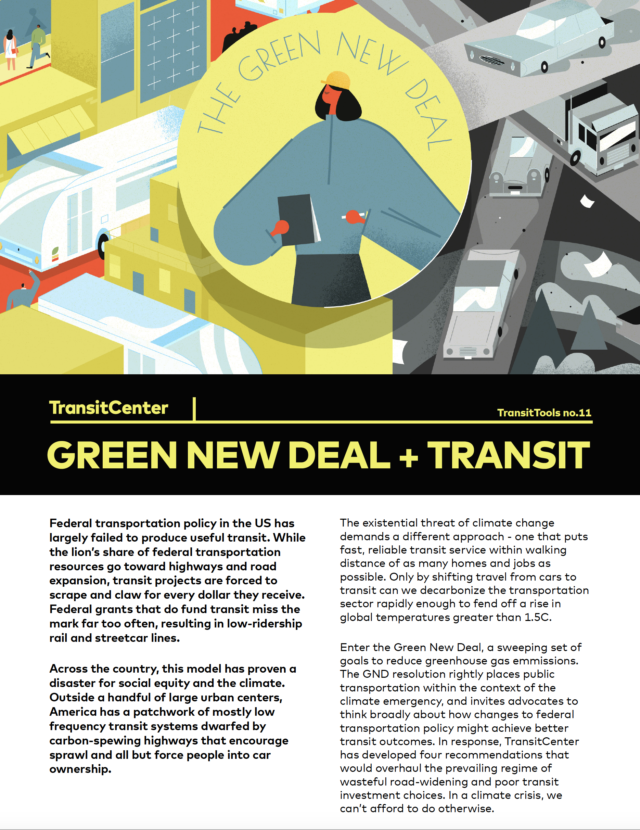 Green New Deal + Transit
Green New Deal + Transit
Federal transportation policy in the US has largely failed to produce useful transit. While the lion’s…
